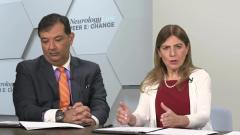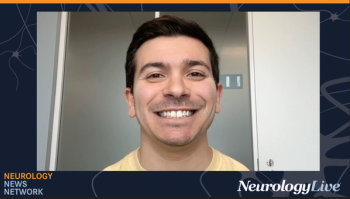
Importance of Primary Care Physicians in Diagnosis of Alzheimer’s Disease
Dr Cohen emphasizes the importance of engagement of primary care physicians in identification of Alzheimer’s disease symptoms and pathology.
Episodes in this series

Marwan Sabbagh, MD: Dr Cohen, how important is it that primary care physicians understand the biomarkers? The question that we all face is do you land biomarkers in primary care or specialty care? Should they leave it to us specialists? Where are you at in that thought process?
Sharon Cohen, MD, FRCPC: Here’s how I think about it. This is a complicated disease. There aren’t enough specialists to deal with it. The primary care physician is an important ally for patients and needs to understand what diagnosis consists of, even if they’re not performing all the steps in the diagnostic pathway. When a patient comes forward with complaints or concerns, or has significant risk factors and is worried about the risk of Alzheimer disease [AD], one needs to approach the syndrome by asking, is there cognitive impairment? You need to do some cognitive screening, and you need to decide if this is subjective cognitive decline, if this is mild cognitive impairment [MCI], if this dementia is mild, moderate, or severe.
Then you need to be respectful that even though this might look like a pattern of 1 of those syndromes, it could be due to underlying Alzheimer disease—let’s say an amnestic MCI or a slowly progressive dementing illness, with memory being the first and early symptom—and a family history of Alzheimer. You’ve got a diagnosis of MCI due to AD or probable AD dementia. But that’s not enough. I’d like our primary care colleagues to understand that it’s not incumbent on them to make the underlying biologic diagnosis—not yet—but to respect that we’re not always going to be right with our syndromic diagnosis. It’s a starting point, and then refer to a specialist in the near term who can take it to the next step and figure out what the underlying cause might be.
If you’re referring to a specialist, you’re going to order imaging, which would be helpful. Family doctors and nurse practitioners can order CTs and MRIs. An MRI is preferable because there’s a lot more information, not ruling out structural lesions, strokes, and tumors but also potentially finding more evidence of an Alzheimer pathology, whether it’s medial temporal lobe atrophy, focal atrophy, or microbleeds. This could be a tip-off that there’s amyloid angiopathy. For family doctors who are diligent and ordering an MRI, what they put on the requisition should direct the radiologist. We don’t want to say, “memory loss.” We want to say, “please rule out hippocampal atrophy.” You’re going to get an answer that’s nil acute, which doesn’t help us.
Family doctors are completely capable of understanding this. We haven’t incorporated it intensively in our teaching because there hasn’t been this need, as we will have therapeutics to home in on the diagnosis. Family doctors will feel empowered, they’ll be more motivated to take this disease seriously, if they know they can perform a certain level of the diagnostic work-up and refer on. When they refer on, they’re going to need to say something to their patient about why they’re doing that. The more sensible conversations are going to come from some knowledge of the family doctor about what the specialist could add.
Transcript edited for clarity
Newsletter
Keep your finger on the pulse of neurology—subscribe to NeurologyLive for expert interviews, new data, and breakthrough treatment updates.





























